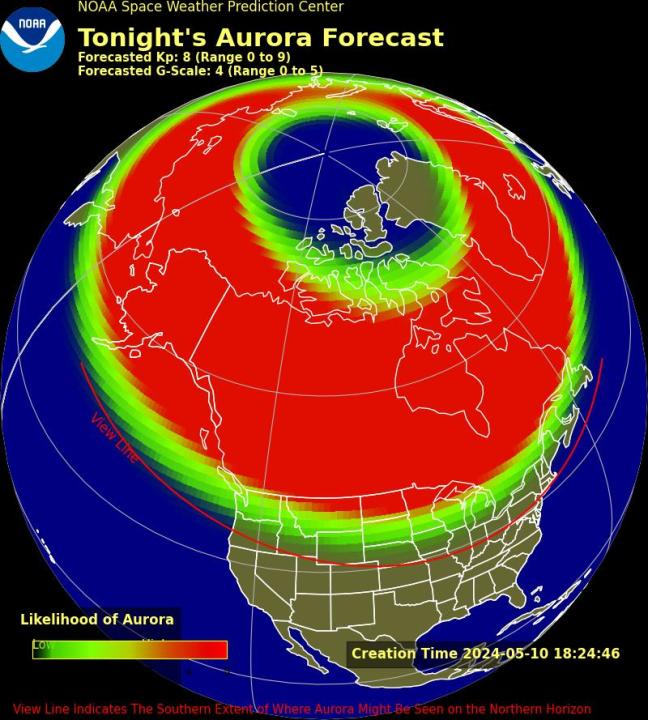Rare geomagnetic storm triggers ‘spectacular displays of aurora’
- Aurora displays may be seen as far south as Alabama
- This is the first severe geomagnetic storm watch issued since 2005
- Storm is expected to hit Friday night and last through the weekend
(NewsNation) — Space weather forecasters predict a severe geomagnetic storm that is expected to hit Earth on Friday night could trigger “spectacular displays of aurora” that may be seen from “as far south as Alabama and northern California.”
An advisory issued by the National Oceanic and Atmospheric Administration’s Space Weather Prediction Center said that a series of solar flares and eruptions caused by a large cluster of spots on the sun could cause severe geomagnetic storms that may last through the weekend.
The agency said the sunspots have been producing several moderate to strong solar flares since Wednesday and at least five flares associated with these coronal mass ejections appear to be directed toward Earth.
Coronal mass ejections are explosions of plasma and magnetic fields from the sun’s corona and cause geomagnetic storms when they are directed at Earth, the agency said.
G4s are the second-strongest form of geomagnetic storms and can impact infrastructure both near the Earth’s orbit and on its surface, “potentially disrupting communications, the electric power grid, navigation, radio and satellite operations,” according to the agency.
Which states will see the show?
The storm being a rare one, the lights display is expected to span much of the U.S. including some southern states. NOAA’s Space Weather Prediction Center shows maps of where the auroras are predicted to be seen:

Rare storm
As a precaution, the agency said it has notified system operators so they can take protective action.
This is the first severe geomagnetic storm watch the agency has issued in nearly two decades.
“We have a rare event on our hands,” said Shawn Dahl, a service coordinator at the Space Weather Prediction Center in Boulder, Colorado, told NBC News.
“We’re a little concerned. We haven’t seen this in a long time.”
Dahl said the storm could arrive as soon as about 8 p.m. ET on Friday.
“We’re less certain on the timing of these events, because we’re talking about something for 93 million miles away,” Dahl said, referring to the distance from the sun to the Earth, the outlet reported.
Dahl told the outlet that smartphones might even be able to capture imagery of the aurora at southern locations.
An aurora is a natural light display that shimmers and gently changes shape in the sky, and are caused by solar storms on the sun that blast electrically charged particles that collide with the Earth.
When these particles collide with the Earth’s magnetic field, they cause the magnificent display of light.














